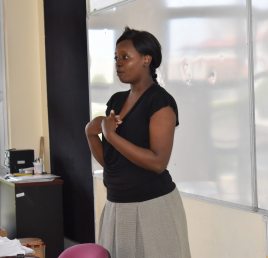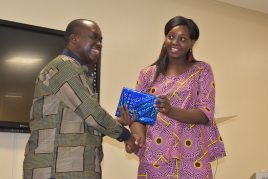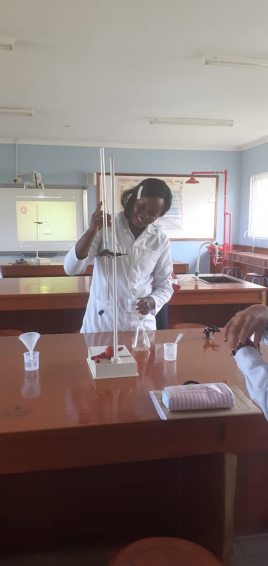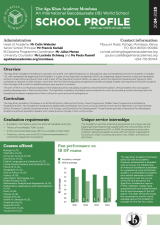Fiona Makena Kinyua: A transformed educator
“I was elated,” she says. “There were twenty graduates who made it to the final phase. I was one of them. It made me very happy because the TPP programme is very competitive.”
TPP, a multi-phase programme, was designed by the Academies to train outstanding graduates from public universities to teach one or more of the International Baccalaureate Programs (IB) schools. The initial component of the three-part programme, Choosing to Teach Institute was launched in Mombasa in 2013. This was followed by the other two components: Learning to Teach Internship and Teaching to Learn Residency. Today, the Programme is taught in all three academies.
The aim of TPP is to train teachers to become transformative educators in their communities with the vision, as the programme states, “to provide exceptionally talented and highly motivated Academies students with a rigorous academic and leadership-development experience.” The skills the trainees gain from completing any component of the programme are considered highly valuable, thus raising academic standards in the schools in which they teach.
Armed with a Bachelor’s degree in Education Science, Fiona completed the TPP training in June 2019, and currently teaches mathematics and chemistry at the Naisula School, Kajiado County in Kenya. Highly motivated and ambitious for her young students, Fiona says it is her training with TPP that drove her to change her education approach. Her instruction is now entirely student- centered, she states proudly. She has whole-heartedly embraced inquiry-based instruction to engage her students and uses the education concept of differentiation to tailor her lessons to meet individual needs.
Fiona Makena Kinyua with TPP Coordinator Tom Abuto“I thank the TPP fraternity for the opportunity to train as an International Baccalaureate teacher. My teaching methods have changed. I remember initially I had a challenge in facilitating an inquiry-based lesson. I am now happy that I do that with ease. I differentiate and engage students. I now reflect and ask students for feedback. I am open and welcoming to colleagues coming to my classes and giving me feedback.”This capacity-building endevour to improve the quality of education in local schools is clearly stated in the TPP mission statement which reads: “TPP seeks to develop teachers who are talented individuals with high professional expectations and aspirations; are creative and committed to their own life-long learning and self-improvement; and have a strong professional identity grounded in a well-articulated philosophy of teaching.”
The TPP’s curriculum makes a fundamental shift-from a focus on teaching to a focus on learning. It is designed to help teachers internalise the IB education philosophy.
“The TPP story is rich,” states curriculum coordinator, Tom Abuto, radiating pride and ambition for his students. He is quick to emphasise that only the topmost candidates are recruited into the rigorous and competitive full 18-month programme.
Fiona Makena KinyuaTPP is a model for a growing number of educators who believe that the programme is a much-needed engine for social change. The TPP is offered in partnership with University of British Columbia which provides programme quality assurance and external assessment of participants’ work.TPP is also the first school-based programme to be recognised by the IB Educator Certificate in Teaching and Learning and the only such programme on the African continent. In addition, the programme is currently seeking recognition from the Cambridge International Examinations under their scheme of Professional Development Qualifications. It is also working towards recognition from the Kenyan Teacher Service Commission.
TPP educators believe that the programme’s distinctive curriculum has the power to train teacher-leaders to motivate students to become agents of social change in their communities. The programme endeavors to produce teachers who are reflective, purposeful and committed to life-long learning.
Fiona feels the skills she has acquired through her training with TPP have transformed her for life. They have completely altered her beliefs and thinking. “My students are now more engaged and enthusiastic. Through differentiation I am also able to be equally inclusive to all students of differing capabilities.”







